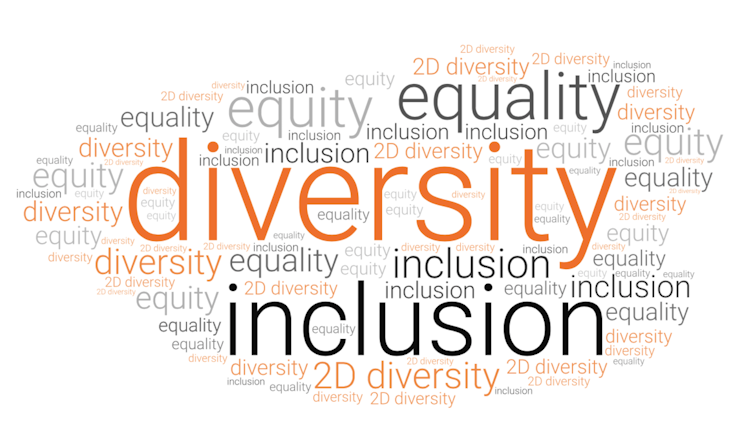In June, the Inclusion, Diversity, and Equity (IDE) Action Committee completed a survey to gather information about a variety of topics. We asked you what barriers you face when participating in Midwest Chapter, the resources and activities you would like to see from the IDE Action Committee; and we gathered demographic information about our chapter that was previously uncollected.
We appreciate everyone who took the time to respond, and we are using the information you gave us to guide our next steps as a committee. Read on for a summary of the survey results and the next steps the IDE Action Committee will be taking.
Survey information
The survey was open from May 24, 2021, through June 4, 2021. The survey was emailed to the Midwest Chapter/MLA listserv, which reaches 269 individuals. There were 39 responses, giving us a 14.5% response rate.
Barriers to Midwest Chapter participation
The two largest barriers to participating in Midwest Chapter are finances and a lack of time.
Having virtual conferences was identified as a benefit for members who are otherwise unable to participate for these two reasons. Many respondents are facing potential budget cuts due to the financial impact of the pandemic. Others have seen a reduction in staff in their library, leading to a larger workload for individuals. Disabilities and impairments were also mentioned as barriers to attending in person meetings due to cost and travel arrangements.
At this time, a person must be a member of MLA (national) in order to serve on the board of Midwest Chapter/MLA. We asked if respondents were aware of this requirement and if it prevents them from participating. Twenty-one respondents were already aware of the requirement and 17 were unaware. Thirty-one respondents said that the requirement does not prevent them from running for office in the chapter, and 7 said that it is a barrier to running. One person would not run anyway.
Annual meeting
Some respondents provided feedback about the annual meeting. The virtual meeting in 2020 was praised for allowing individuals who cannot normally attend the meeting for a variety of reasons to be able to do so. It was also noted that in some years there has been a lack of publicity for the annual meeting.
Resources and programs
We asked what type of programming and resources you would like to see from the IDE Committee and the answer was largely “all of the above”. We received lots of wonderful ideas from respondents as well, like education on the definitions, issues, and philosophies of DEI and how to apply those to our workspaces.
Some made requests for writing job descriptions and brainstorming sessions for reducing barriers within the profession. Suggestions were made to engage more with marginalized people in library school by mentoring and working towards starting a scholarship.
Chart of What resources, programs, etc would you like to see from the IDEA Committee
Answers from high to low: Limited Speakers; DEI Audit-Collections; Diverse Hiring Resources & DEI-Library Policies (tied); DEI Audit-Space; Other.
What we’re doing now
The IDE Action Committee has discussed the results of the survey and is now moving forward on some projects. Many of these are long-term projects, so please look for more information from us in the future.
As we plan these projects, we are keeping in mind the barriers that were brought to light in the survey. Our goal is to have resources and programming that are accessible to our members, so financial and time constraints are being considered.
We also want to make use of the tools that have made things more accessible to members with disabilities. Further, we recognize that as a committee we are somewhat homogeneous, so we are actively working to learn from and uplift marginalized voices, as well as those who have expertise or lived experiences related to diversity, equity, and inclusion. This includes our membership. If you have expertise or lived experience in any of these areas and would like to provide your insight, we would greatly appreciate it.
Gathering diverse hiring resources to include on our web page
Planning some chapter events for 2022 that will provide opportunities to learn about diversity, equity, and inclusion issues and give members space to discuss and ask questions.
Demographics
In total we received 39 responses. More than half of participants have been health sciences librarians for more than ten years. Every respondent holds a master’s degree in library and information science (or equivalent) or another area.
Answers from high to low: Do not identify with a disability or impairment; Learning disability & Mental Health disorder (tied); Long term medical illness; Sensory impairment; Mobility impairment, Temporary impairment, & Unlisted (tied); Not say.
Woman 81.6%, Cisgender Woman 10.5%, Trans Man 2.6%, Man 2.6 %, Not listed 2.6 %.
Pie Chart of Which of these best describe s your racial identity?
White/Caucasian 47.4%, American Indian/Alaskan Native/Indigenous/Metis/Inuit 13.2%, African American/Black 13.2%, Asian 13.2%, Asian American 13.2%.
Pie Chart of How do you describe your sexual identity.
Heterosexual 58.8%, Bisexual 17.6%, Queer 11.8%, Lesbian 5.9%, Prefer Not to Say 5.9%.

